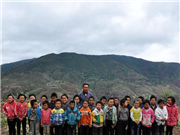

GENEVA, May 8-- UN officials on Friday hailed China's achievement in the effort to reduce, abandon and control the persistent organic pollutants (POPs) in the seventh meeting of the Conference of the Parties to the Stockholm Convention, held here from May 4 to 15.
Li Lei, who heads the Chinese delegation, said in a side event that China has banned 17 internationally produced POPs, such as DDT, chlordane and mirex, since the Stockholm Convention entered into force in China.
Meanwhile, she also noted China has disposed more than 36,000 tons of POPs waste and contaminated soil, and curbed the increase of dioxin emission.
"We've seen that China has made every effort to address this issue. We've seen the POPs phrasing out, abandoning, and other regulatory standards are putting into place, it's really impressive what China has been doing," Rolph Payet, Executive Secretary of Secretariat of the Basal, Rotterdam and Stockholm Conventions, told Xinhua.
"Of course there are lots of challenges," Payet added, "I think China can promote more research, more development of alternative safe chemicals."
"China has been very good at leveraging the persistent organic pollutants assistance, it has done a lot of efforts on its own, especially the legislative and technical part," said Jacques Van Engel, Director of United Nations Development Program (UNDP)'s Montreal Protocol/ Chemicals Unit.
During the side event, UNDP and the Chinese delegation launched POPs Hunter, a first-ever bilingual smart phone game, as part of an international campaign to promote the elimination of POPs and raise the general public's awareness of these pollutants.
Van Engel said: "we don't just want the game to be a success; we see it as a springboard to getting sustained and widespread participation from the public and other stakeholders, promoting behavior change for a cleaner and safer environment."
POPs are a set of hazardous pollutants created by industrial processes, which are resilient in character, infiltrating ecosystems to spread across large areas, harming human health and the environment.
Signed by over 100 countries and regions, the 2001 Stockholm Convention on POPs specifies a list of these highly toxic chemicals which signatory governments ban, seeking to reduce and eventually eliminate their production and use.
 |
Day|Week

 Tsinghua junior makes over 10,000 yuan a day by selling alumnae's used quilts
Tsinghua junior makes over 10,000 yuan a day by selling alumnae's used quilts Graduation photos of students from Zhongnan University
Graduation photos of students from Zhongnan University A school with only one teacher in deep mountains
A school with only one teacher in deep mountains Glimpse of cultural heritage "Xilankapu"
Glimpse of cultural heritage "Xilankapu" Homemade cured hams in SW China
Homemade cured hams in SW China Breathtaking buildings of W. Sichuan Plateau
Breathtaking buildings of W. Sichuan Plateau Graduation photos of "legal beauties"
Graduation photos of "legal beauties" Top 10 most expensive restaurants in Beijing in 2015
Top 10 most expensive restaurants in Beijing in 2015